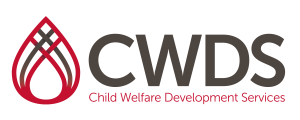CWDS Curriculum
Facilitation Skills for Child and Family Team Meetings – 12 Hours
Level: Advanced Practice – Lineworker, Supervisor
Credits: 12 Hours
Intended Audience: This course is intended for lineworkers and supervisors to build their skills in facilitating family team meetings. In this two day facilitation training, trainees will learn the strategies and skills for helping groups solve problems and build agreement to enhance the safety of children and families. This training will also provide a solid foundation of theory and facilitation practice skills for immediate use.
Description of Course: This is an experiential training for facilitators of Child and Family Team Meetings in child welfare agencies. The purpose of Family Team Meetings of any type is to build agreements between the Department, families, providers and other essential team members. It is largely the responsibility of meeting facilitators to bring a very disparate group of people into CFTMs and build critical agreements and decisions.
Intended Objectives:
- Increase skills on building shared understanding and shared agreements with groups
- Broaden knowledge of communication across differences and learn guidelines to support conversations where communication breakdown is likely to occur
- Offer preventions and interventions to mitigate and intervene when there are unwanted meeting behaviors
- Create a plan to “try on” the facilitation practice both as meeting participants and facilitators in their work
- Demonstrate basic facilitation skills (i.e. helping the group stay focused on key issues, insuring participation by all individuals present, reach shared agreements, etc.)
- Demonstrate balanced attention to relationship, process and outcomes within facilitation using the Dialogue Structure
- Demonstrate respectful engagement of participants in FTMs through challenging conversations (such as conversations in which families and the department disagree about danger/risk; conversations in which power differential of participants to be inhibiting the process)
- Through inquiry, help the group differentiate danger from complicating factors and safety from supporting strengths
- Help the group develop a clear danger/risk statement, safety statement, safety goal, and plan for next steps
Topics Include:
- Building Shared Agreements
- Communication guidelines to support conversations
- Facilitation Skills
- Dialogue Structure
- Danger/risk statements, safety statement, safety goal, and plan for next steps
Teaming Strategies



